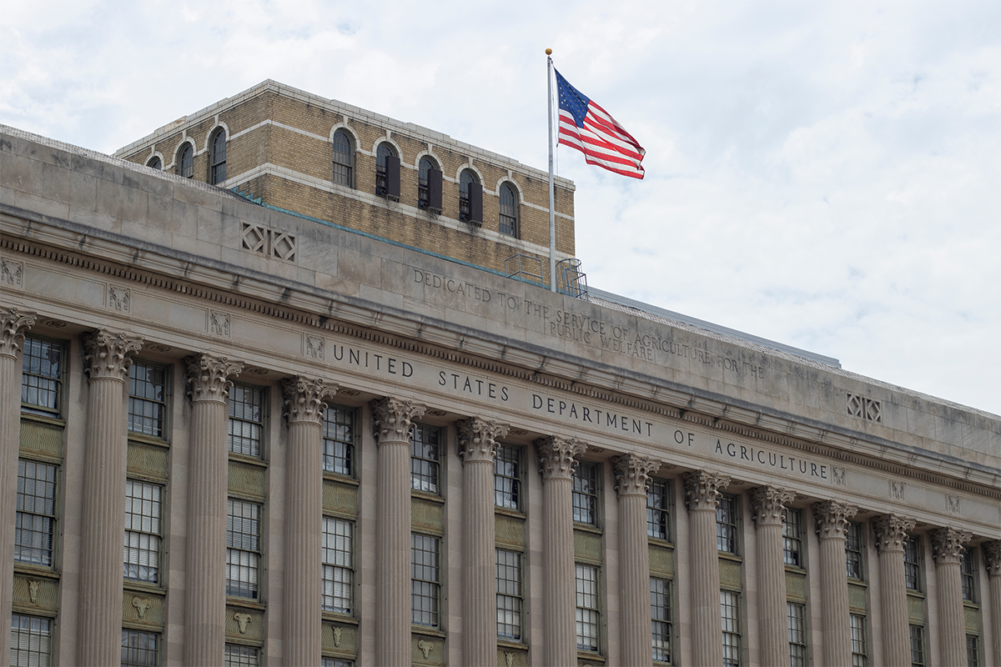WASHINGTON – The US Department of Agriculture and Agriculture Secretary Tom Vilsack updated how the agency plans to approach competition issues in agricultural markets.
On Nov. 8, Vilsack and the USDA finalized a series of rules under the Packers and Stockyards Act, including helping contract poultry growers compete and understand agreement terms with major processing companies.
The agency also updated several efforts that started after President Joe Biden’s executive order issued in July 2021 aimed at promoting competition in heavily concentrated American industries.
These include clarifying the domestic origin requirements a farmer must fulfill to sell meat products to comply with USDA’s food purchases for nutrition assistance programs and creating a new, senior-level career position to formalize and enhance implementation of key competition policy priorities across USDA.
“From day one, President Biden has been committed to a robust and effective set of Packers and Stockyards regulations that will bring better transparency and more fairness to America’s producers and growers,” Vilsack said. “This rule and the other actions we are announcing today bring transparency and accountability to transactional relationships across the poultry industry, seed industry and federal procurement, and they are critical steps in USDA’s competition and farmer fairness agenda.”
The final rule tells live poultry dealers, usually large processing companies, to provide a “Live Poultry Dealer Disclosure Document” that presents poultry growers information needed to see outcomes they can expect before making financial decisions, such as capital-intensive facility improvements or taking out loans.
Also, the rule will require dealers to disclose earnings for growers by quintile, establish minimum flock placements and explain variable costs growers might incur and how companies handle occurrences such as sick flocks and natural disasters.
USDA stated that the rule established accountability and governance framework that must be certified by the poultry company’s chief executive officer.
“It’s high time that poultry growers get the benefit of robust transparency — upfront and ongoing — to clean up the broiler chicken market of deceptive practices,” said Andy Green, USDA senior advisor for fair and competitive markets. “This Poultry Transparency Rule in particular lays down a powerful marker that USDA stands on the side of market integrity and fairness for farmers and is a vital example of the more than 72 actions kickstarted by the historic Biden-Harris Executive Order on Promoting Competition in America’s Economy.”
The rule also requires dealers to provide tournament-specific disclosures of inputs to poultry growers who are paid using a poultry grower ranking system. An additional requirement is that companies also show the distribution of inputs, housing specifications, and any feed disruptions for all the growers in the tournament at the time of payment.
The agency added that the names of the growers will not be disclosed to protect their privacy.
USDA explained that under the final rule live poultry dealers that slaughter fewer than 2 million live pounds of broilers weekly or 104 million pounds per year are exempt from the requirements, provided they do not require additional capital investments.
In another announcement, the Agricultural Marketing Service (AMS) clarified that meat products must be from animals that are born, raised and slaughtered in the United States to meet the domestic origin requirements for purposes of USDA purchasing. AMS explained that it procures food products of domestic origin for use in nutrition assistance programs. The agency explained that guidelines for procuring beef, pork, lamb and bison products were not as clear as other commodities. During 2022, AMS purchased $800 million worth of meat products.
Lastly, the USDA said it would establish a chief competition officer working at the AMS. The new position would implement key competition policy priorities at AMS and support efforts including Packers & Stockyards Act enforcement, seed transparency and competition and partnerships with State Attorneys General.
These latest announcements come as administration officials travel the country as part of the Investing in Rural America Event Series.



